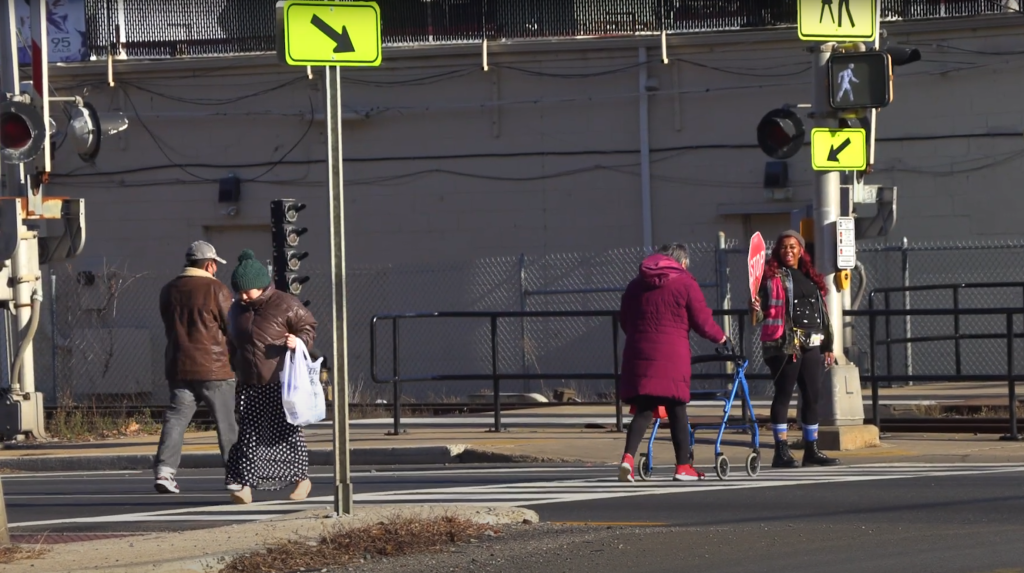World Day of Remembrance
The World Day of Remembrance for Road Traffic Victims is commemorated on the third Sunday of November each year. It is a global event to remember the millions of people who have been killed and seriously injured on the world’s roadways and to acknowledge the suffering of the victims and their families. It is also meant to pay tribute to the dedicated emergency crews, police and medical professionals who deal with the traumatic aftermath of crashes every day.
This year’s World Day of Remembrance will be observed on Sunday, November 17. In New Jersey, advocates and families of traffic crash victims will come together at 11am at Metuchen Borough Hall to honor lives lost and call on leaders to take steps to reduce fatalities and serious injuries on New Jersey’s roads. More information is available here. Over one million people are killed on roads around the world every year. In New Jersey alone, 606 people lost their lives in 2023 while riding their bicycles, walking, driving, or riding as passengers. Countless more have been left with life-altering injuries. This day serves as a solemn reminder of the need for safer streets.
While honoring the lives of those we have lost, the World Day of Remembrance is also meant to highlight the need for changes to address and prevent more traffic-related deaths. It has become an important tool for governments and everyone whose work involves crash prevention or response. According to the web site, the Day “offers the opportunity to demonstrate the enormous scale and impact of road deaths and injuries, call for an end to the often trivial and inappropriate response to road death and injury and advocate for urgent concerted action to stop the carnage.”
Crashes are Not Accidents
Among the many actions we can take to improve roadway safety is to be more deliberate in how we refer to these traumatic events. The New Jersey Department of Transportation (NJDOT) recently updated its terminology, choosing to use the word “crash” instead of “accident” when referring to traffic collisions. This change aligns with the language used by USDOT and reinforces the understanding that traffic incidents often involve preventable factors. By shifting to “crash,” NJDOT underscores its commitment to addressing the systemic causes behind these incidents —a commitment that also aligns with New Jersey’s 2020 Strategic Highway Safety Plan (SHSP) and its vision of achieving zero deaths on all public roads. Using the term “crash” rather than “accident” is crucial when prioritizing zero deaths on all roads because it shifts the perspective on traffic collisions from being inevitable mishaps to preventable events. Language shapes how people think and behave. The term “crash” supports the idea that traffic safety is a matter of public health and that changes in policy, design, and behavior can reduce risk.

A crossing guard assists vulnerable road users at the intersection of Route 129 and Lalor Street in Trenton, NJ (Source: NJDOT Technology Transfer)
Replacing Accident with Crash
Using the term “accident” is common in discussions surrounding vehicle collisions, notes Dr. Kelcie Ralph, in her research on the topic. When “accident” is used to describe a motor vehicle collision, it implies that the collision occurred purely by chance or that no one is at fault. This choice of words when describing a vehicle collision “obscures the preventable nature of the incident,” implying that nothing can be done to prevent future collisions.
The New Jersey Department of Transportation’s shift also reflects the growing movement away from using “accident” to “crash” when discussing vehicle collisions. In 2016, the Associated Press changed its style guide from “accident” to “crash” when writing about vehicle collisions. Similarly, in 2019 Grammarly also shifted away from correcting users when the word “crash” was used. Police departments across the United States have also been making this shift. For example, in 2013 both the San Francisco and New York City police department adopted the change, with the Denver Police Department adopting a similar shift in 2022.
NJDOT Policy is a Model for the State
Moving away from using “accident” and toward “crash” is a significant step in acknowledging the responsibilities of vehicle operators and road owners like NJDOT to reduce crashes. The new policy is also a reflection of a national shift in how media, law enforcement, and transportation officials talk about vehicle collisions.
Specifically, the NJDOT Crash Not Accident Policy will do the following:
- “Accident Records Information” will be renamed “Crash Records Information”
- “Accident Data Form” will be renamed “Crash Data Form”
- The NJDOT Safety Manual will be amended to change “accident” to “crash” when the “accident” in question refers to damage of state vehicles or includes vehicular collisions.
- All correspondence with the public, publication of internal documents, and statements or speeches given on behalf of the Department will also reflect this policy’s directive.
If you are interested in the shift away from “accident” to “crash” in the language used to describe motor vehicle collisions, you can take the Crash Not Accident Pledge.
By Robert Johnson and Greg Woltman, AICP
